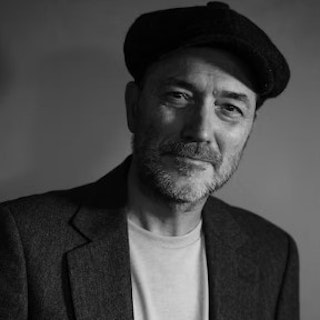Owning the story: how Wonderhood Studios and brands are sharing the spotlight
In an industry where the traditional lines between advertising and content creation are increasingly blurred, David Abraham’s Wonderhood Studios offers a compelling blueprint for the future.

Wonderhood is helping clients like Waitrose tap into culture
As the former chief executive of Channel 4, David Abraham is steering Wonderhood into uncharted territory by combining the roles of an advertising agency and a television production company. This hybrid model doesn’t just deliver campaigns; it creates intellectual property (IP) that can be shared with brands – a concept that could redefine agency-client relationships.
“The industry still suffers from siloed thinking,” Abraham notes during our conversation. “We’re the only company in the UK that’s both a top 10 independent television producer and an independent creative agency. It’s about understanding audiences. Storytelling is becoming more challenging for brands in a fragmented media environment. If you can draw on skills from both short and long-form content, it creates an efficient model.”
Want to go deeper? Ask The Drum
One of the most intriguing aspects of Wonderhood’s approach is its focus on owning IP and the potential to co-own it with brands. This isn’t just about creating content; it’s about building assets that have longevity and can generate ongoing value. “Over time, there’s a mixed model at Wonderhood, where we own the rights to the programs we’re making,” Abraham explains. “The ultimate prize would be to create a returning hit which could generate IP as a format. Imagine we’d create a TV hit partially with a brand, and the brand would co-own the program with us into the future.”
This idea isn’t without precedent. The recent success of the Barbie movie serves as a prime example of how co-owned IP between entertainment entities and brands can yield significant dividends. The film, a collaboration between Mattel and Warner Bros., not only boosted toy sales but also revitalized the Barbie brand for a new generation. Similarly, The Lego Movie demonstrated how a brand can be seamlessly integrated into a compelling narrative, resulting in both box office success and increased brand engagement.
Advertisement
Wonderhood aims to replicate this kind of synergy. Projects such as Super Surgeons on Channel 4 – funded by Macmillan Cancer Support – embed brand messaging within meaningful storytelling. Another example is My Grandparents’ War, featuring actors Keira Knightley and Kit Harington, funded in part by MyHeritage. These programs weave brand involvement into the narrative without compromising editorial integrity.
“Research suggests that the better the show – the more premium it is – the more accepting viewers are of brand partnerships,” Abraham says. By focusing on high-quality content that they own, Wonderhood manages to maintain audience engagement while delivering sustained value to brands.
The agency’s model presents a significant shift in how agencies and brands might collaborate. Instead of transactional relationships focused on individual campaigns, there’s an opportunity for shared investment in content that builds equity over time. This could be a game-changer in an era where brands are vying for deeper connections with their audiences.
Advertisement
Beyond television, Wonderhood has developed a social content studio called Wonderhood Makers, producing timely campaigns for clients such as Waitrose. They’ve tapped into cultural moments and utilized well-known personalities to create buzz, but the ownership of content remains a focal point. “It’s about creating cultural resonance,” Abraham explains. “Whether that’s through real-time social content or longer-term projects, we’re focused on engaging audiences across different platforms while building assets that have lasting value.”
So, what can other agencies learn from Wonderhood’s approach? In a time when the old certainties of media consumption are dissolving, flexibility and innovation are key. Agencies need to move beyond siloed thinking and consider how they can integrate different forms of content creation while also investing in IP that can offer long-term benefits.
Operating independently with a team of about 90 people, Wonderhood isn’t constrained by the limitations that often come with larger network affiliations. This independence allows them to tailor their services and explore co-ownership models with brands. “Some of our clients lean more into us as a creative agency and occasionally tap into the content side,” says Abraham. “Others focus solely on content with us while working with other agencies for different needs.”
The takeaway is clear: the advertising landscape is changing, and agencies must adapt to remain relevant. By owning and co-owning IP, agencies can create new revenue streams and build stronger partnerships with brands. The success stories of Barbie and The Lego Movie illustrate the potential of this model, and Wonderhood Studios is positioning itself to be at the forefront of this shift.
Suggested newsletters for you
As brands seek more meaningful and enduring connections with their audiences, the lines between advertising, content, and entertainment will continue to blur. Agencies that embrace this shift and develop the capabilities to create and own content across these domains will be better positioned to navigate the complexities of the modern media environment.
In Abraham’s words, “We’re focused on investing in talent and know-how. It’s about finding efficient ways to tell stories that resonate with audiences, whether that’s through advertising, television, or social media, while also building assets that have a life beyond the initial campaign.”
The traditional boundaries are breaking down, and it’s time for agencies to rethink their strategies. By owning IP and exploring co-ownership opportunities with brands, agencies like Wonderhood Studios are not just innovating – they’re setting a new standard for what’s possible in a fragmented media landscape.

